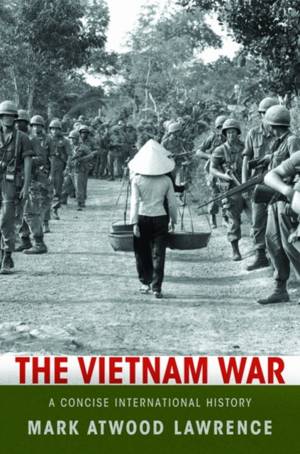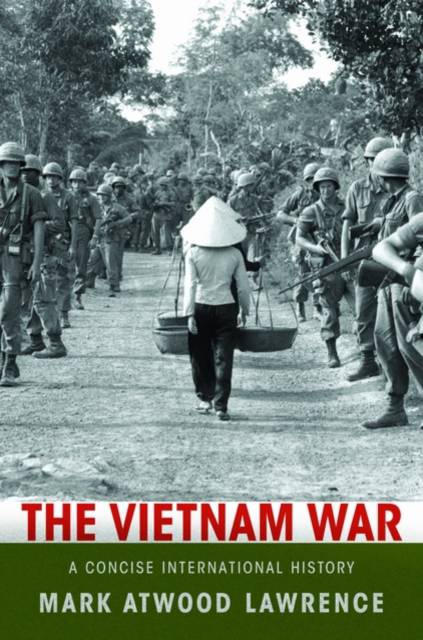
Wil je zeker zijn dat je cadeautjes op tijd onder de kerstboom liggen? Onze winkels ontvangen jou met open armen. Nu met extra openingsuren op zondag!
- Afhalen na 1 uur in een winkel met voorraad
- Gratis thuislevering in België vanaf € 30
- Ruim aanbod met 7 miljoen producten
Wil je zeker zijn dat je cadeautjes op tijd onder de kerstboom liggen? Onze winkels ontvangen jou met open armen. Nu met extra openingsuren op zondag!
- Afhalen na 1 uur in een winkel met voorraad
- Gratis thuislevering in België vanaf € 30
- Ruim aanbod met 7 miljoen producten
Zoeken
€ 24,95
+ 49 punten
Uitvoering
Omschrijving
The Vietnam War remains a topic of extraordinary interest, not least because of striking parallels between that conflict and more recent fighting in the Middle East. In The Vietnam War, Mark Atwood Lawrence draws upon the latest research in archives around the world to offer readers a superb account of a key moment in U.S. as well as global history. While focusing on American involvement between 1965 and 1975, Lawrence offers an unprecedentedly complete picture of all sides of the war, notably by examining the motives that drove the Vietnamese communists and their foreign allies. Moreover, the book carefully considers both the long- and short-term origins of the war. Lawrence examines the rise of Vietnamese communism in the early twentieth century and reveals how Cold War anxieties of the 1940s and 1950s set the United States on the road to intervention. Of course, the heart of the book covers the "American war," ranging from the overthrow of South Vietnamese President Ngo Dinh Diem to the impact of the Tet Offensive on American public opinion, Lyndon Johnson's withdrawal from the 1968 presidential race, Richard Nixon's expansion of the war into Cambodia and Laos, and the problematic peace agreement of 1973, which ended American military involvement. Finally, the book explores the complex aftermath of the war--its enduring legacy
in American books, film, and political debate, as well as Vietnam's struggles with severe social and economic problems. A compact and authoritative primer on an intensely relevant topic, this well-researched and engaging volume offers an invaluable overview of the Vietnam War.
in American books, film, and political debate, as well as Vietnam's struggles with severe social and economic problems. A compact and authoritative primer on an intensely relevant topic, this well-researched and engaging volume offers an invaluable overview of the Vietnam War.
Specificaties
Betrokkenen
- Auteur(s):
- Uitgeverij:
Inhoud
- Aantal bladzijden:
- 224
- Taal:
- Engels
- Reeks:
Eigenschappen
- Productcode (EAN):
- 9780195314656
- Verschijningsdatum:
- 4/08/2008
- Uitvoering:
- Hardcover
- Formaat:
- Ongenaaid / garenloos gebonden
- Afmetingen:
- 211 mm x 140 mm
- Gewicht:
- 368 g

Alleen bij Standaard Boekhandel
+ 49 punten op je klantenkaart van Standaard Boekhandel
Beoordelingen
We publiceren alleen reviews die voldoen aan de voorwaarden voor reviews. Bekijk onze voorwaarden voor reviews.











